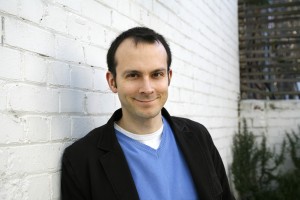How to be happy? Start enjoying failure
 As part of the recent Alumni Day that saw an array of exciting talks and panel discussion, economist Tim Harford visited Warwick to claim the mantle of key-note speaker. For a theme entitled, ‘The Happiness Effect’, the immediate reaction may be surprise. What does so great a sceptic as Harford, author of The Undercover Economist and the Logic of Life, have to say on happiness? Quite a lot, it turned out. In addition to spreading happiness via the laughter of his audience and my pleasure of receiving a signed copy of the former, Harford provided a valuable life lesson.
As part of the recent Alumni Day that saw an array of exciting talks and panel discussion, economist Tim Harford visited Warwick to claim the mantle of key-note speaker. For a theme entitled, ‘The Happiness Effect’, the immediate reaction may be surprise. What does so great a sceptic as Harford, author of The Undercover Economist and the Logic of Life, have to say on happiness? Quite a lot, it turned out. In addition to spreading happiness via the laughter of his audience and my pleasure of receiving a signed copy of the former, Harford provided a valuable life lesson.
Harford did not yield a series of entrepreneurial ideas – economists are naturally averse to breaking the intellectual barrier to entry – but he did explain how to pursue such concepts. Amid typical encouragement to follow your skills and interests in a career, Harford indicated that one of the greatest methods of success is failure. He spoke of how one failed opera paved the way for the dazzling success of the next, as the organiser gathered individual points from every critique to form a spreadsheet of her shortcomings. The broader idea was the separation of emotion from failure.
A thought-process that eliminates desire and discontent is by no means simple. The advantage, however, is that it allows for the clearest vision of mistakes, remedies and prospects. Much of what I remember from his address has been diluted by my interpretation of what he said. It seemed to me that this method was one that could apply to anything, be it business, romance or humour. Rejection is a part of everyday life – by voting bodies, social bodies, even human bodies. The tragedy is not when people lose opportunities, but when they become deterred from trying. Failure is but another success if used in the correct manner. If one can form a spreadsheet of points of criticism, those raised by journalists as to a distasteful opera or by companions as to a dislikeable personality trait, the frequency and scale of the criticism can be all the more evident. Systematic, but what other advice would one expect of an economist?
Divorce yourself from your failures, Harford advocated, and you open the way for a relentless quantity of possibilities and prospects. Human beings have such creativity, and failure is but a means of stifling it unless one utilises that failure to manufacture success en masse. Harford illustrates that failure creates an opportunity in itself, one where the risk is emotional entanglement and the reward is self-improvement. The former students who visited the university have fewer years ahead of them, but all the more failures from which to learn. Those with more years ahead of them can now look forward to all the failures, from which lessons can be learnt.
It was a pleasure to have Mr Harford speaking at the Warwick Alumni Day. In addition to explaining the lack of taxis on a rainy day, and signing a copy of a book with which I intend to surprise my former Economics teacher, the Undercover Economist has added another asset to our arsenal. He has underlined an ability that we have had for all this while, but perhaps just not realised: our potential to use failure to our advantage.
Comments